Paleontology
Paleontology is the scientific study of prehistoric life, including the study of fossils, ancient plants, and ancient animals. Paleontologists use a variety of scientific techniques to uncover and study the remains of ancient organisms in order to understand the history of life on Earth.
Key Concepts in Paleontology
- Fossils: Fossils are the preserved remains or traces of ancient organisms. They can be found in rocks, sediment, and ice, providing valuable information about past life forms.
- Evolution: Paleontology helps us understand the process of evolution by studying the changes in ancient organisms over time, and how new species emerged and went extinct.
- Stratigraphy: The study of rock layers (strata) and the layering of sedimentary rocks to understand the geological timeline of Earth's history.
- Paleobiology: The study of ancient organisms and their biological characteristics, including their anatomy, behavior, and ecological interactions.
- Paleoclimate: Paleontologists analyze fossils and ancient plant life to reconstruct past climates and environmental conditions.
Methods and Tools Used in Paleontology
- Fossil Excavation: Paleontologists use tools such as brushes, chisels, and rock hammers to carefully extract fossils from their surrounding rock.
- Microscopy: Microscopic analysis helps paleontologists study the structure and composition of fossils at a detailed level.
- Radiometric Dating: This method helps determine the age of fossils and rocks by measuring the decay of radioactive isotopes.
- CT Scanning: Computerized Tomography (CT) scanning is used to create detailed 3D images of fossils without damaging them.
- Comparative Anatomy: Paleontologists compare the anatomy of ancient organisms with living species to understand their evolutionary relationships.
Notable Paleontologists and Discoveries
Include some notable paleontologists such as Mary Anning, Richard Owen, and Roy Chapman Andrews. Discuss their significant contributions to the field of paleontology and the major discoveries made by them.
Study Tips for Paleontology
- Understand the principles of geology and stratigraphy to grasp the context of fossil discoveries.
- Develop strong observational skills to identify and analyze fossils accurately.
- Learn about evolutionary biology and anatomy to comprehend the significance of paleontological findings.
- Stay updated with current research in paleontology through scientific journals and publications.
- Participate in fossil identification exercises and field trips to gain practical experience in paleontological work.
By studying paleontology, you'll gain a deeper understanding of the history of life on Earth and the processes that have shaped the diversity of species we see today.
.◂Science Worksheets and Study Guides Sixth Grade. Plant Processes
Study Guide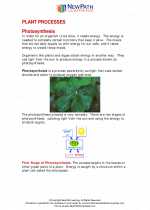 Plant Processes
Plant Processes  Activity Lesson
Activity Lesson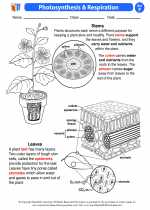 Photosynthesis & Respiration
Photosynthesis & Respiration  Worksheet/Answer key
Worksheet/Answer key Plant Processes
Plant Processes  Worksheet/Answer key
Worksheet/Answer key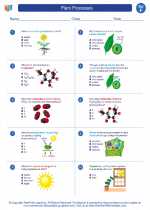 Plant Processes
Plant Processes  Worksheet/Answer key
Worksheet/Answer key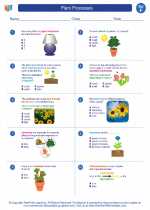 Plant Processes
Plant Processes  Worksheet/Answer key
Worksheet/Answer key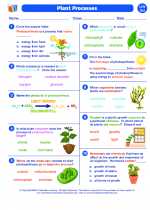 Plant Processes
Plant Processes  Vocabulary/Answer key
Vocabulary/Answer key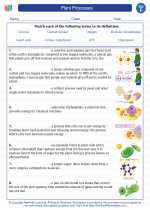 Plant Processes
Plant Processes  Vocabulary/Answer key
Vocabulary/Answer key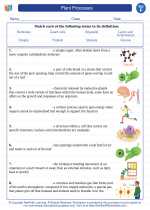 Plant Processes
Plant Processes 

 Activity Lesson
Activity Lesson
 Worksheet/Answer key
Worksheet/Answer key
 Worksheet/Answer key
Worksheet/Answer key
 Worksheet/Answer key
Worksheet/Answer key
 Worksheet/Answer key
Worksheet/Answer key
 Vocabulary/Answer key
Vocabulary/Answer key
 Vocabulary/Answer key
Vocabulary/Answer key

The resources above cover the following skills:
LIFE SCIENCE
From Molecules to Organisms: Structures and Processes
Students who demonstrate understanding can:
Construct a scientific explanation based on evidence for the role of photosynthesis in the cycling of matter and flow of energy into and out of organisms.